CBD and GABA Wellness Benefits
Summarize
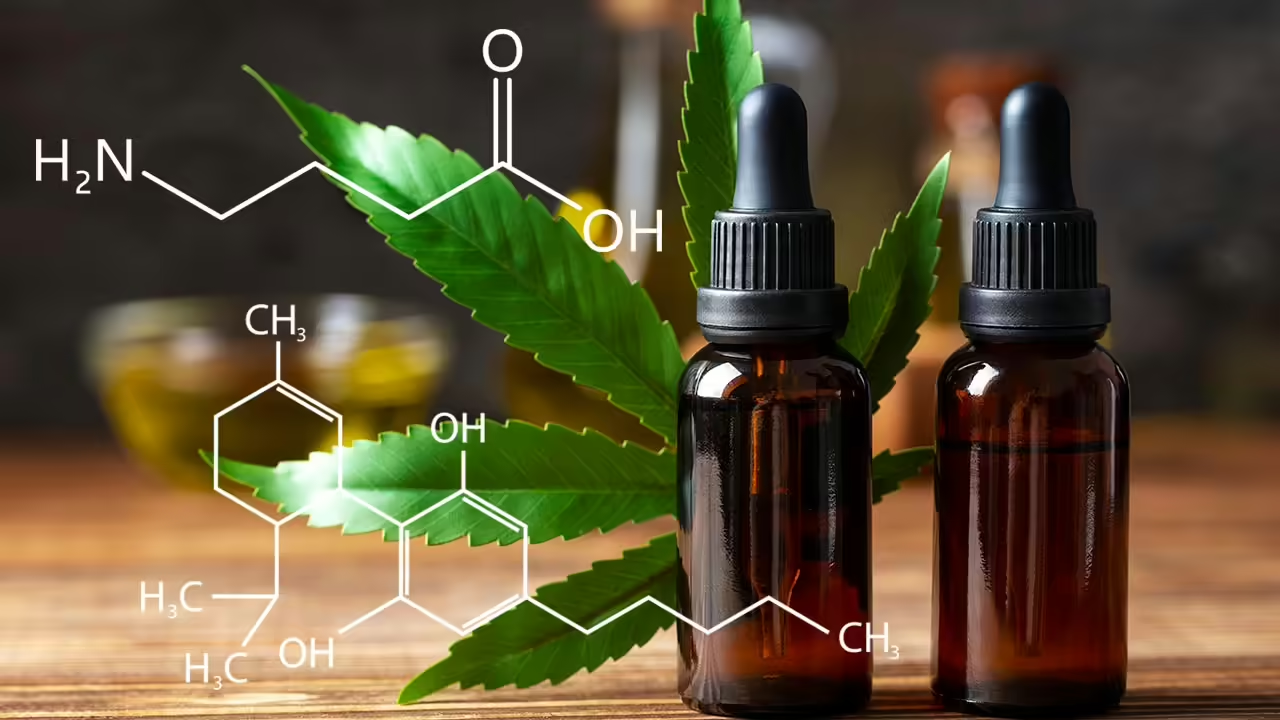
Researchers are increasingly demonstrating in clinal studies that Cannabidiol (CBD) may have therapeutic value in many ways, from reducing discomfort to improving sleep. Some clinical studies are gathering more data on how CBD interacts with GABA, a neurotransmitter in the CNS (central nervous system). As research continues, there is growing evidence that CBD with GABA may enhance the effects of both.
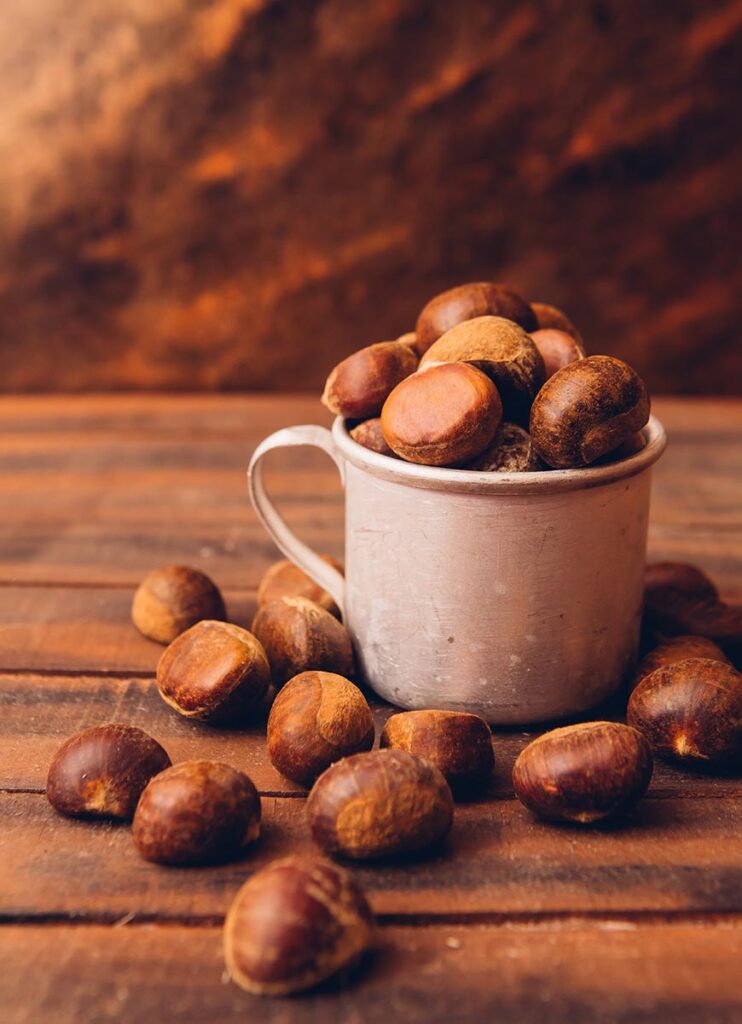
TL;DR (Too Long; Didn’t Read):
GABA is a neurotransmitter in the brain that inhibits excessive neuron activity throughout the central nervous system. It is produced by the body and consumed in supplements and foods. CBD with GABA may enhance the possible wellness effects, promoting calm, sleep quality, a positive mood and less muscle tension. Some CBD products contain GABA plus other wellness-supporting ingredients like melatonin, various botanicals such as valerian and Rhodiola rosea and amino acids like L-theanine.
Table of Contents
What is the Connection of CBD and Brain Function?
Though still under study, it is known that CBD influences brain functioning in different ways. Recent research has found that CBD does not bind to the endocannabinoid receptors CB1 and CB2 but modulates their activities. However, it is also believed to interact in other ways, such as with TRPV1 and GABA-A, which are ion channels. Ion channels are protein structures in cell membranes that enable ions to move across the cell. You can think of it as a flow of electrically charged particles, like an electrical system, signaling cells in nerves and muscles to act.
TRPV1 is an ion channel that acts as a sensor for discomfort due to stimuli like capsaicin and heat. GABA-A is a type of GABA receptor.
What is GABA?
GABA is the acronym for Gamma-Aminobutyric Acid, a neurotransmitter. GABA is produced from glutamate in the presynaptic neuron by an enzyme. GABA is an amino acid that blocks signals in the central nervous system (CNS) to calm it down. It slows down brain signals and inhibits signaling in the spinal cord. The amino acids bind to GABA receptors to modulate activity in the ion channels associated with cell signaling.
In particular, GABA binds to GABA-A and GABA-B receptors. Through the binding process, GABA inhibits nerve transmission action by hyperpolarizing neurons and reducing the release of neurotransmitters. GABA is essential to many physical activities. For example, by calming the CNS. It helps prevent unwanted motor (i.e., muscle) signals and is involved in the respiration rate. In the spinal cord, GABA supports the creation of smooth movements. GABA-A has been linked to enhanced sleep.
What is the Effect of CBD on GABA?
CBD modulates brain excitatory glutamate and GABA levels, the brain’s neurotransmitters. In simple terms, CBD is an allosteric modulator of targeted GABA-A receptors. An allosteric modulator is a molecule, in this case CBD, that indirectly alters the response of receptors to stimuli.
CBD is believed to increase the GABA currents when GABA concentration is low. This increases GABA’s affinity for the GABA-A receptors, enhancing GABA’s effects.
What Foods are Rich in GABA?
The body does produce GABA, but you can naturally increase GABA through your dietary choices. Some foods that contain the highest amount of GABA include the following.
- Legumes, including soybeans, lentils, adzuki and other common beans
- Peas
- Grains like oats, wheat and barley
- Grains, like all colors of rice (all colors) and sprouted grains
- Cruciferous vegetables, like broccoli, kale and Brussels sprouts
- Spinach
- Sweet potato
- Shiitake mushrooms
- Nuts, including chestnuts, walnuts and almonds
- Fermented foods, like kimchi and kefir
- Teas
- Herbs that include valerian and St. John’s wort
- Cocoa
While these foods are considered rich in GABA, they may still not supply enough to sustain wellness. You must also follow a healthy diet daily to supply enough GABA to your system. Also, everyone’s metabolism and health status are different. This is why people take GABA supplements. The precursor of GABA is found in dried fruits, tomatoes, spinach, parsley, eggs, meat and fish.
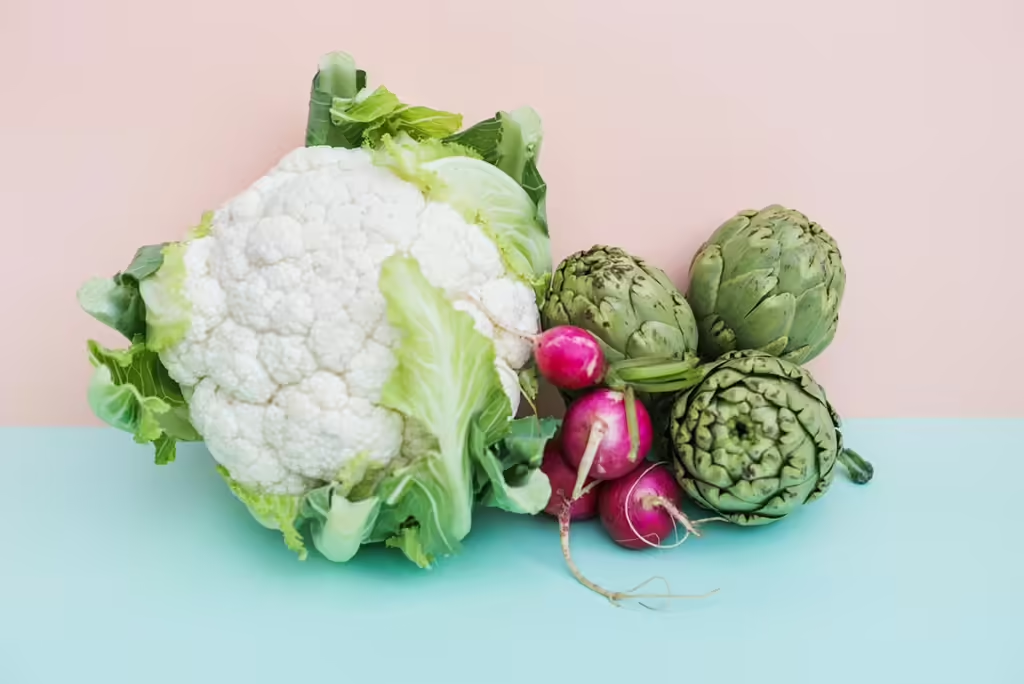
CBD and GABA Benefits
It is well-known that taking compounds that work together may have a synergistic effect, meaning the benefits are enhanced. Various studies have found that the potential benefits of taking CBD and GABA together may include the following.
Sleep
The interaction of CBD with GABA-A receptors may improve sleep. When GABA neurotransmitters are activated, slow-wave sleep is favored. Researchers have found that CBD and GABA can improve sleep duration and quality.
Relaxation
CBD has a calming effect on the CNS through its interaction with the ECS, which may promote relaxation and feelings of calm. GABA reduces CNS excitement through modulation of neurological activity. The potential synergy wellness of CBD and GABA taken together may enhance feelings of calm, which, in turn, may also support better sleep and less tension.
Muscle tension
Researchers have found that CBD may help athletes in numerous ways, including assisting with muscle performance and recovery after physical exertion. GABA may also have a positive effect on muscles by reducing muscle rigidity. GABA has been directly linked to muscle activity as a neuronal communicator. When GABA is low, you may experience muscle spasms.
Discomfort
GABA can positively affect discomfort through hyperpolarization of cell membranes. This means that the neurotransmitter makes neurons less likely to fire and lowers neuron excitability, reducing this feeling.
Mood
GABA contributes to mood stabilization. There is significant evidence that low GABA is involved in mood disorders. Taking GABA may improve mood, which is also true for CBD. Studies have reported that CBD may have an anti-depressant-like effect and may promote relaxation.
So many people are taking CBD and GABA supplements because of their benefits. Medical researchers know CBD interacts with the GABA receptors, but more research is needed to understand the exact mechanisms better.
Ways to Take CBD and GABA Together
You can employ one of two strategies to take CBD and GABA together. A strategy is to buy CBD products containing GABA supplements.
There are several advantages to choosing a product that enables you to take CBD and GABA together.
- You know how much CBD and GABA are in each dose.
- You can control the CBD potency, starting with a low potency to determine the effects before increasing it.
- Products with CBD and GABA may also have other wellness ingredients, like valerian, Rhodiola rosea and ashwagandha.
- Taking melatonin and GABA together may significantly improve sleep because melatonin has been found to enhance GABA-A receptor activity, which increases GABA production.
- You can take too much GABA, leading to issues like excessive daytime sleepiness or restless sleep. Taking products with premeasured CBD and GABA can help you avoid this potential side effect.
A necessary caution is to check with your doctor before taking any CBD product, with or without GABA. Both can interact with some prescription medicines, especially heart and blood pressure medications.
For example, one of the potential GABA supplement interactions is that taking too much GABA can decrease blood pressure in some people. If you are already on blood pressure medicine, your blood pressure may drop too low. Canada has conducted extensive studies on GABA because it is regulated and considered a medicine. The suggested limits on GABA intake are 50-3000 mg GABA daily and no more than 750 mg per single dose. Clinical studies found that taking GABA 120 mg of GABA daily for 12 weeks did not elicit any adverse effects.
CBD products containing GABA do not contain excessive amounts of GABA. It is added to supplement CBD activity. Many CBD brands list all ingredient amounts on their Certificate of Analysis (COA). GABA amounts will likely be around 10-100 mg per dose, within the safety range.
The U.S. Food and Drug Administration has classified GABA as “generally recognized as safe” to use..
Natural Products Deliver the Power of Wellness
Can you take CBD and GABA together? You can take them together as a natural solution to promote wellness, calmness and better sleep. For some people, CBD and GABA may help them control discomfort and improve muscle activity. The main caution is that taking too much CBD and GABA can cause drowsiness. You should start with a low dose of both CBD and GABA and assess the effects before increasing CBD potencies and GABA amounts.
Sources
- Schouten M, Dalle S, Mantini D, Koppo K. Cannabidiol and brain function: current knowledge and future perspectives. Front Pharmacol. 2024;14:1328885.
https://www.frontiersin.org/journals/pharmacology/articles/10.3389/fphar.2023.1328885/full - Louis-Gray K, Tupal S, Premkumar LS. TRPV1: A Common Denominator Mediating Antinociceptive and Antiemetic Effects of Cannabinoids. Int J Mol Sci. 2022;23(17):10016.
https://www.mdpi.com/1422-0067/23/17/10016 - Jewett BE, Sharma S. Physiology, GABA. In: StatPearls [Internet]. Treasure Island (FL): StatPearls Publishing; 2023. Available from: https://www.ncbi.nlm.nih.gov/books/NBK513311/
- Pretzsch CM, Freyberg J, Voinescu B, et al. Effects of cannabidiol on brain excitation and inhibition systems; a randomized placebo-controlled single dose trial during magnetic resonance spectroscopy in adults with and without autism spectrum disorder. Neuropsychopharmacology. 2019;44:1398–1405. https://www.nature.com/articles/s41386-019-0333-8 and
Bakas T, van Nieuwenhuijzen PS, Devenish SO, et al. The direct actions of cannabidiol and 2-arachidonoyl glycerol at GABAA receptors. Pharmacol Res. 2017;119:358-370. https://pubmed.ncbi.nlm.nih.gov/28249817/ - Briguglio M, Dell’Osso B, Panzica G, Malgaroli A, Banfi G, Zanaboni Dina C, Galentino R, Porta M. Dietary Neurotransmitters: A Narrative Review on Current Knowledge. Nutrients. 2018;10(5):591.
https://pmc.ncbi.nlm.nih.gov/articles/PMC5986471/ - Gasmi A, Nasreen A, Menzel A, Gasmi Benahmed A, Pivina L, Noor S, Peana M, Chirumbolo S, Bjørklund G. Neurotransmitters Regulation and Food Intake: The Role of Dietary Sources in Neurotransmission. Nutrients. 2023;15(2):481. https://pmc.ncbi.nlm.nih.gov/articles/PMC9822089/
- Gottesmann C. GABA mechanisms and sleep. Sleep Med Rev. 2002;6(1):1-21.
https://www.sciencedirect.com/science/article/abs/pii/S0306452202000349 - Rojas-Valverde D, Fallas-Campos A. Cannabidiol in sports: insights on how CBD could improve performance and recovery. Front Pharmacol. 2023;14:1210202.
https://www.frontiersin.org/journals/pharmacology/articles/10.3389/fphar.2023.1210202/full - Joy DS. Scientists gain detailed images of how a protein that calms brain activity works. Dornsife News. June 17, 2020. https://dornsife.usc.edu/news/stories/gaba-receptor-structure-reveals-pam-drug-target-site/
- Qian X, Zhao X, Yu L, Yin Y, Zhang X-D, Wang L, Li J, Zhu Q, Luo J. Current status of GABA receptor subtypes in analgesia. 2023;164(2):115-123. https://www.sciencedirect.com/science/article/pii/S0753332223015986
- Petty F. GABA and mood disorders: a brief review and hypothesis. J Affect Disord. 1995;34(4):275-281. https://pubmed.ncbi.nlm.nih.gov/8550953/
- De Gregorio D, McLaughlin RJ, Posa L, Ochoa-Sanchez R, Enns J, Lopez-Canul M, Aboud M, Maione S, Comai S, Gobbi G. 2018;160(1):136–150. https://pmc.ncbi.nlm.nih.gov/articles/PMC6319597/
- Yu Q, Guo Q, Jin S, Gao C, Zheng P, Li D-P, Wu Y. Melatonin suppresses sympathetic vasomotor tone through enhancing GABAA receptor activity in the hypothalamus. Front Physiol. 2023;14:1166246.
https://www.frontiersin.org/journals/physiology/articles/10.3389/fphys.2023.1166246/full - Suni E, Singh A. GABA for Sleep. Sleep Foundation. Updated December 22, 2023. Available from: https://www.sleepfoundation.org/sleep-aids/gaba-for-sleep
- Oketch-Rabah HA, Madden EF, Roe AL, Betz JM. United States Pharmacopeia (USP) Safety Review of Gamma-Aminobutyric Acid (GABA). Nutrients. 2021;13(8):2742. https://pmc.ncbi.nlm.nih.gov/articles/PMC8399837/
Share this post


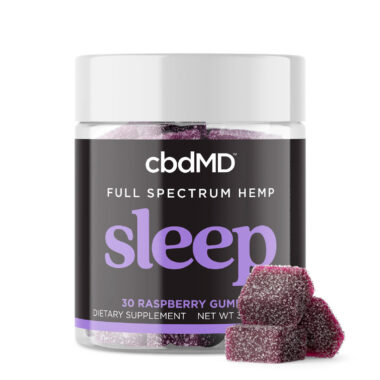
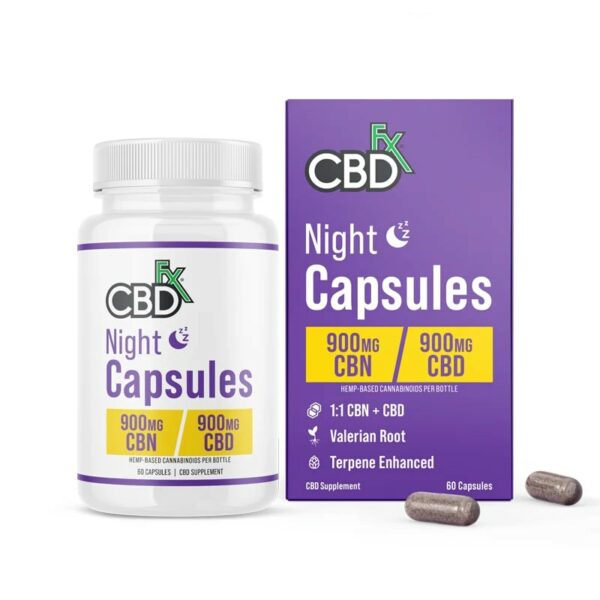
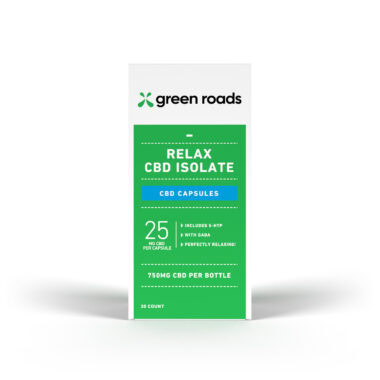
0